
PETALING JAYA, June 8 — Before the dish arrives at your table, you can already smell its delectable, smoky aroma.
Then you see your server approaching with skewers of charcoal-grilled pork that are still surprisingly juicy and full of flavour.
You can barely wait to snatch a stick of this Melaka-style pork satay up, if only to dip into the spicy-sweet satay sauce.
There is an unexpected tang to go along with the requisite nuttiness; you uncover tiny chunks of pineapple in the gravy and thank the genius who thought of adding them.
This is not an uncommon scene at Kampung Dining, a Peranakan restaurant in Section 17, PJ. The eatery is owned by Derson Tan, who has nearly eight years of food-and-beverage (F&B) experience.
Tan was studying in Taipei in his 20s when he first entered the F&B industry by working part time in restaurants there. He explains, "It was mainly to earn my pocket money while studying in Taipei under scholarship. To be honest, I did not attain a proper ‘degree’ culinary certificate.”
The now 35-year-old had, in fact, pursued a Bachelor of Chemical Engineering but his part-time jobs in numerous restaurants — from Chinese restaurant chains to smaller family-run local eateries — showed him where his passion truly lies.
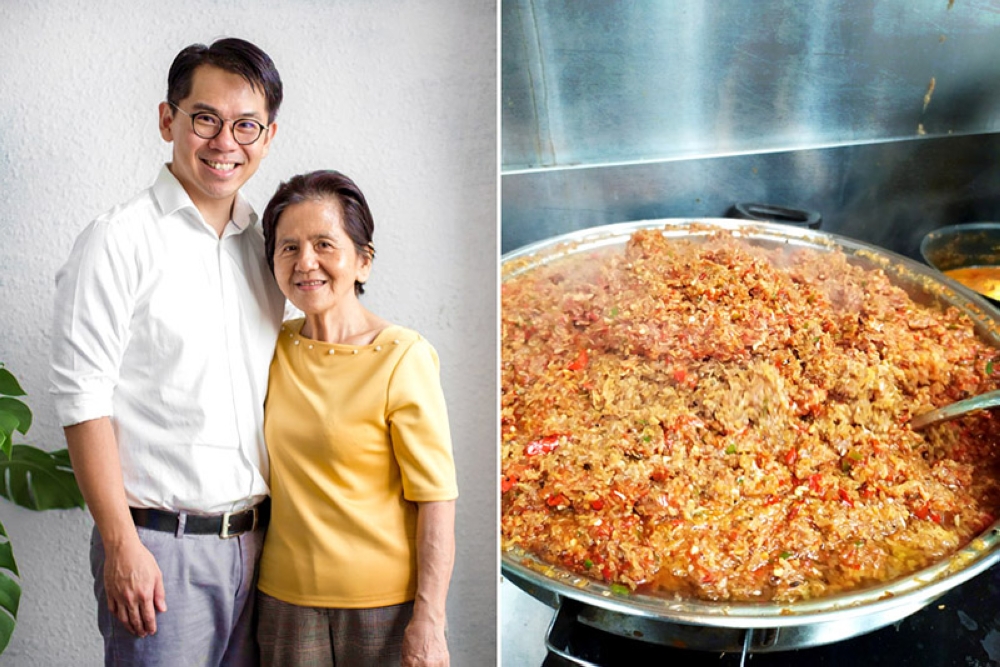
Tan shares, "I think what struck me the most when I was working in those restaurants is the restaurant culture. We had long hours yet everyone in the kitchen was happy doing what they are doing with a strong bond.”
The cooking techniques that he picked up in Taiwan were another lodestone for Tan as these had their roots in the traditional recipes. There was a method, a foundation for him to build on.
He adds, "However the chefs were never afraid to try out new ingredients or spices to create a small twist to the classic dishes. Everyone is guided by a general rule but not confined by it — that really makes me excited. To me, that is creativity at work.”
As with many others who entered F&B later in life, there were signs from the beginning. Tan recalls, "Since young, I’ve been cooking at home with my mother. I started to learn from her and developed my passion towards cooking.”
This early exposure didn’t quite prepare Tan for the realities of a fast-paced commercial kitchen. He says, "Working in the restaurants made me understand that cooking in a home kitchen is vastly different.”
Later, when Tan was planning to open his own restaurant, these experiences really helped him "to think through how to make dishes consistent when cooking in larger batches and how to manage a commercial kitchen.”
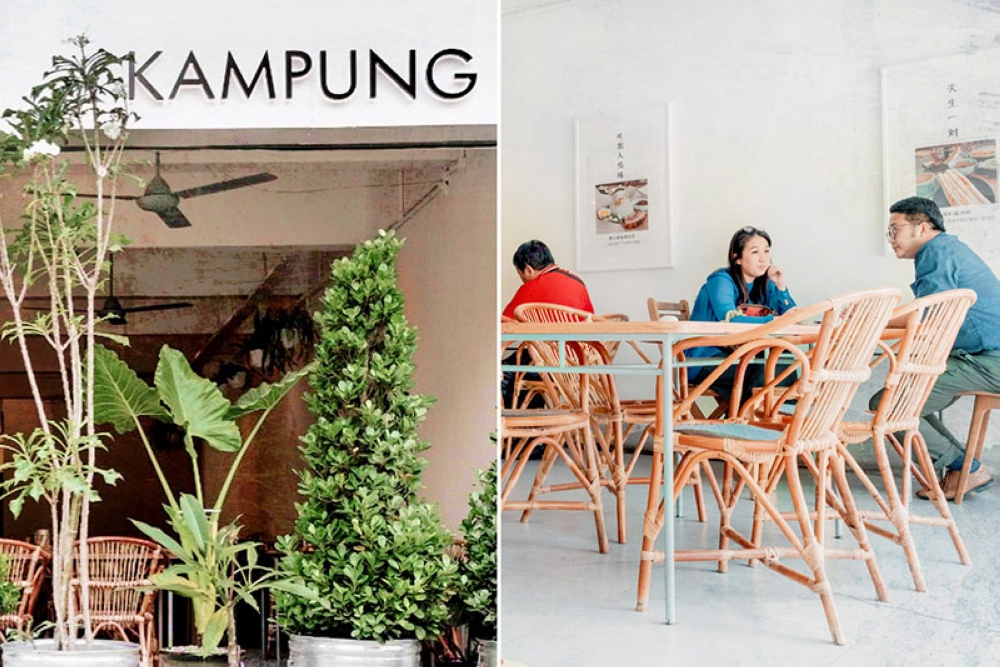
How is the food at Kampung Dining different from numerous other Peranakan restaurants? Tan shares that he wanted to "serve food that sparks joy in me, which is Peranakan cuisine, but with a modern twist by having fruits in sauces and different ways of serving our national dishes.”
There is a deep love for Peranakan cuisine — Tan says that "it’s the cuisine that made me fall in love with cooking” — but with an approach that he picked up from his first cooking teacher, his mother.
Tan shares, "At Kampung Dining, we create dishes with only real herbs and spices with zero MSG, just as my mum taught me to.”
This means not using any commercial ready-made pastes or ingredients. One can taste the difference when food is made from scratch, such as the ever-popular Melaka cendol with a generous drizzle of sticky-sweet gula Melaka sauce.
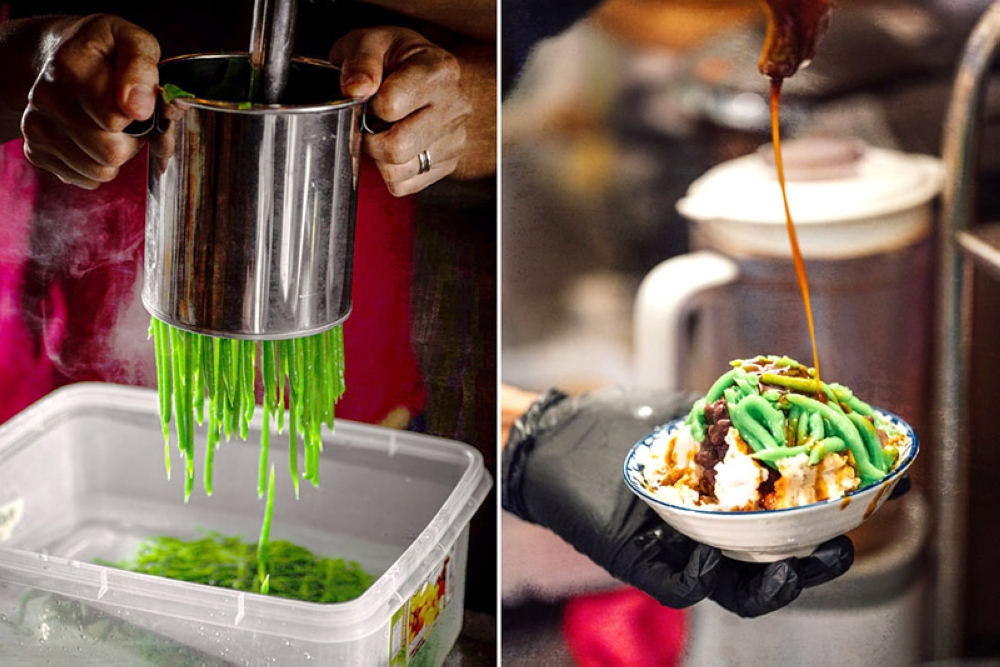
Tan observes, "It’s real cooking — a philosophy I stay true to until today because I think that’s the pride and respect we should give to our heritage food.”
Which isn’t to say that the recipes themselves are static, immovable relics. Tan relishes playing with different ingredients and combinations to create small yet satisfying changes to these classics, such as Starfruit Assam Fish, Shrimp Sambal with Yuzu, and Crackling Skin Roasted Pork with Yakiniku Sauce.
Tan’s own personal favourite is Kampung Dining’s signature Pork Satay with Pineapple Peanut Sauce. He explains, "In my memory, my mum’s pork satay is always juicy, tender and bigger than the usual satay. The pineapple peanut sauce that pairs with pork satay is super refreshing with a balanced flavour of pineapple, peanuts and rempah (spices).”
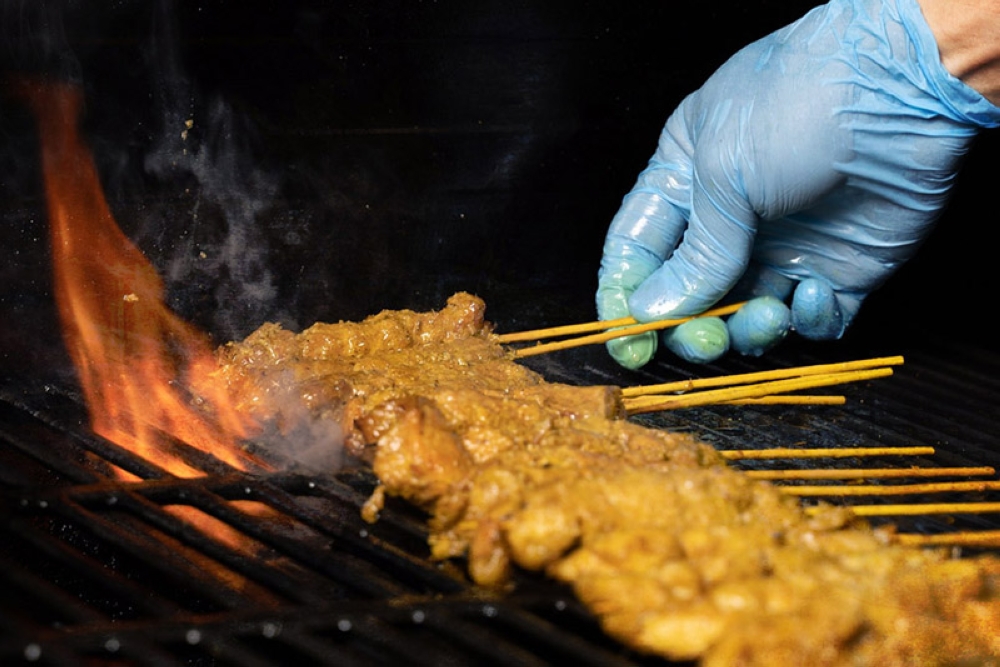
The challenge for Tan in recreating his mother’s recipe is recapturing the flavour. He jokes, "Each time I ask my mum for the recipe, her answer is always agak-agak. However, running a restaurant business means I need the recipe to be more accurate so that the flavour of every batch stays consistent.”
Though now the worst of the pandemic is over, Tan still feels traumatised by the lockdown period. He recalls, "It was too sudden. Honestly, I think nobody expected it to last so long. This was also the time when we were expecting a new baby in the family.”
To survive, Tan tweaked Kampung Dining’s business model, from experimenting with different ways to increase their delivery business to transforming their dining floor into a grocery market.
He says, "We were lucky and got support from the residents in the neighbourhood who bought from us. In the kitchen, we tried so many new products — Nyonya Kuih Boxes, Lunch Boxes and, most exciting of all, our Mega Siuyuk Pork Lard Nasi Lemak Cake.”
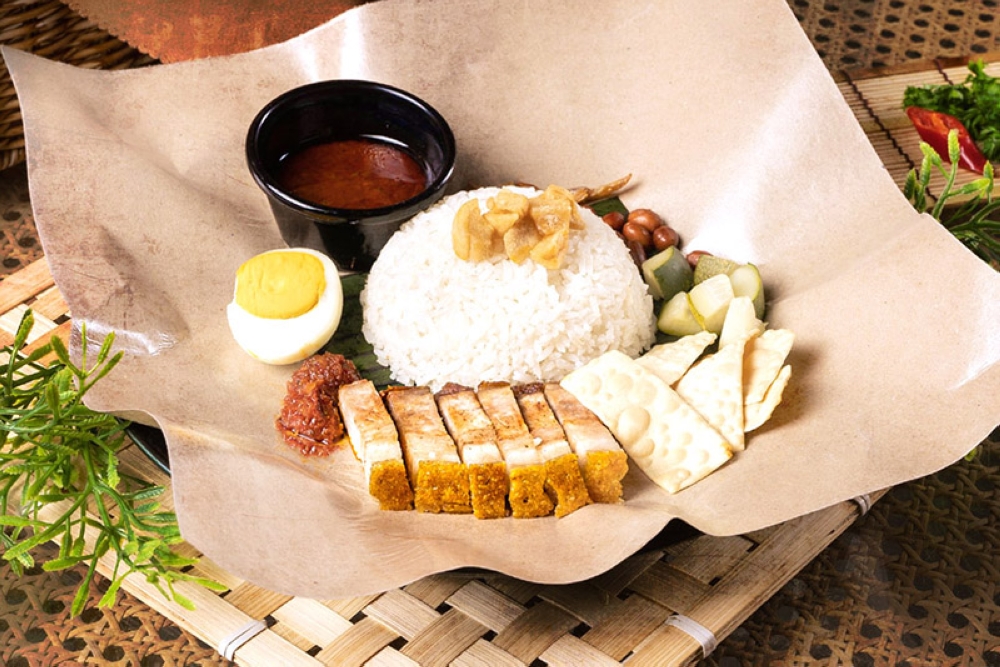
The invaluable lesson Tan learned was to always re-invent the business and its strategies. He says, "Be customer centric — think of what they would like and create services or dishes that attract your audience. Every day, we needed to think of different ways to reach customers online.”
The recent rise in ingredient costs is another challenge. Tan explains, "As a non-halal restaurant, pork is our main ingredient, especially in our star products such as Siuyuk Pork Lard Nasi Lemak and Pork Pongteh. We use only local antibiotics-free pork but the prices continue to rise every two to three weeks.”
To continue creating value-for-money dishes yet still be able to earn a profit, Tan has returned to the drawing board, i.e. recipe development. He says, "We developed our Nyonya Curry Laksa using seafood instead of pork. We also created a few other pork dishes using trimmed pork from siu yuk to minimize wastage.”
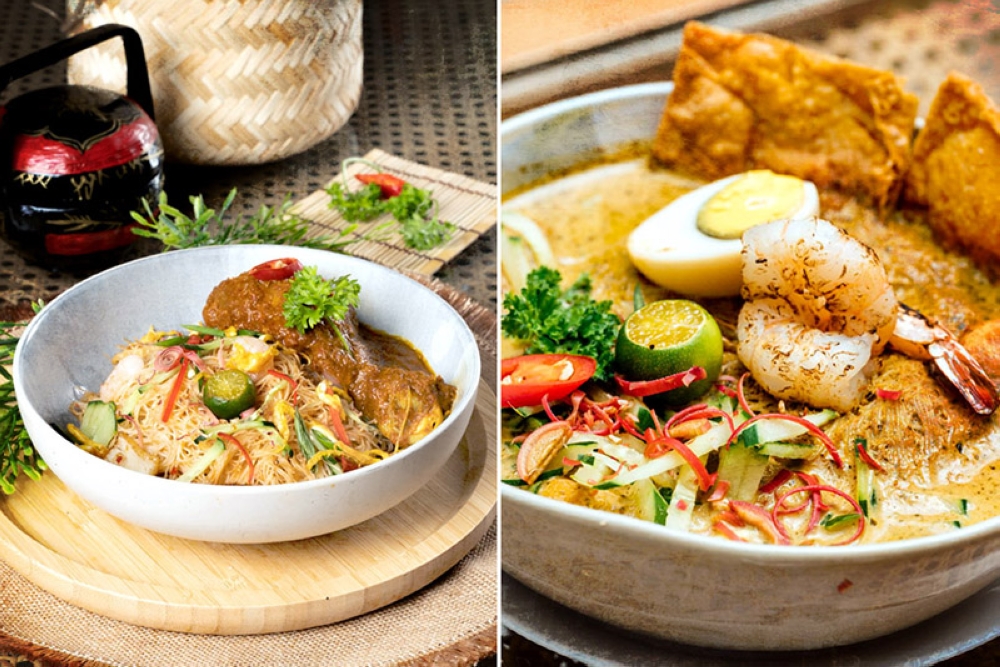
New dishes in this vein include Kampung Dining’s Iberico Pork collar, Hokkien Mee with Pomegranate, Mee Siam and Nyonya Bak Steak (Meatballs). These have helped Tan both to expand his menu offerings as well as reduce his dependency on pork belly, such as for the roasted siu yuk.
Happily, things are looking up. Last Christmas, Tan opened a new Malaysian Japanese "resto-bar” concept outlet called Lax Lax in 1 Utama.
He shares, "It was exciting for us, with more traditional Peranakan fare at Kampung Dining and Lax Lax now offering fusion cuisine. We love local food and to be able to do what I am doing now with customers loving my food is really a dream come true.”
Kampung Dining 娘惹咖啡店
11, Jalan 17/45, Petaling Jaya
Open daily (except Tue closed) 10:30am-3:30pm and 5:30pm-9:30pm
Web: kampungdining.com
FB: facebook.com/kampungdining/
IG: instagram.com/kampungdining.17/
* Follow us on Instagram @eatdrinkmm for more food gems.






















